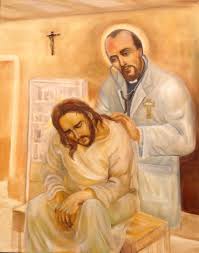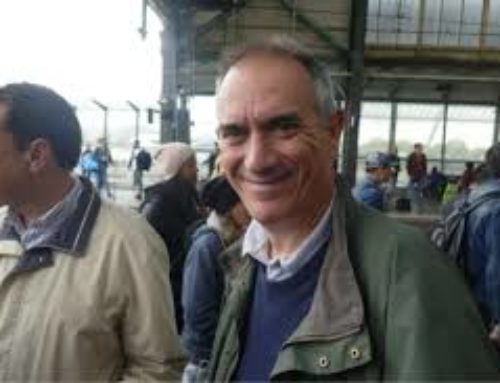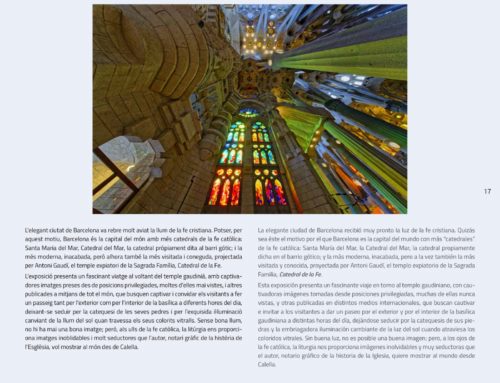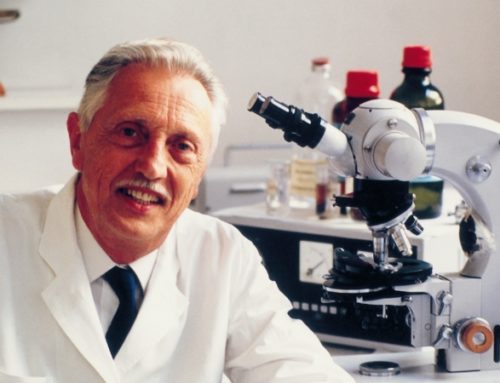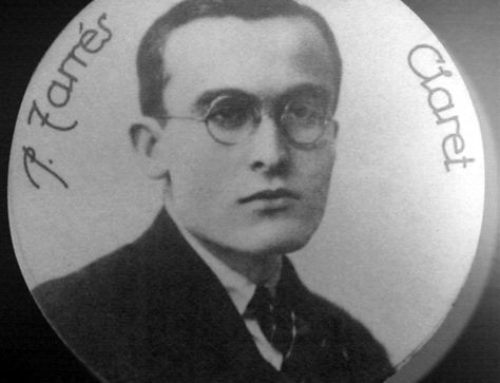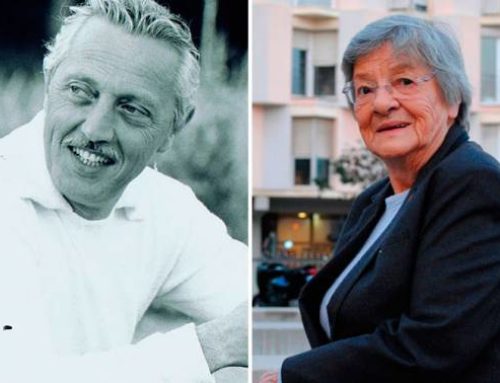THE PHYSICIAN
What was the contribution of the medical profession on Anthony Mary’s personal spirituality?
His writings do not give any hint about his medical career: to Carlo Magni he talks about medicine, but a spiritual one (ibid, 27); only incidentally and always with a spiritual meaning, he mentions the barbaric methods used to cure at his time, as he talks about “those who know how to cure wounds with iron and oil” (ibid, 184). Maybe the most direct reference is in the Constitutions, when, talking about the integrity of sacramental confession, he reminds the novices that “the one who shows many mortal wounds to the doctor, but hides one, dies of it” (ibid, 178). Anyhow the whole chapter VI of the Constitutions is dedicated to the care of the sick, where Anthony Mary uncovers his sense of responsibility in the practice of his profession. For the sick, all kind of exceptions; for them, everything is justified, any dispensation is granted, no diligence is too excessive. The Superior himself is due to visit them personally daily, “to cheer them up and to comfort them with words and deeds” (ibid, 162); rather, he adds: “The Superior should avoid to be found negligent in this!” (ibid). This chapter was thought to be so important that it was included almost in its entirety in the Constitutions of 1579.
But more than in the writings, it is in the life of Anthony M. Zaccaria that we look for the great contribution of the medical profession towards his personality and spirituality.
The doctor has a “clinical eye.” Anthony Mary had it developed so much that his contemporaries were talking about divination and reading of the hearts. The nuns in Cremona, after only one sermon said that even if he had been there for twenty-five years, he could not have known more about their defects than what he had told them already. He told Father Soresina, in charge of the formation of the Omodei brothers, to take care of the most mischievous one and not to bother with the most holy one, because he would not persevere: in fact, Fabrizio became Father Paul Mary, while the other got married. In Vicenza, as soon as he saw Tito Degli Alessi, he did not say a word, but signed him on the forehead: and Tito became a Barnabite. In Guastalla, along the Po river, a young man seemed full of energies and life, but Zaccaria, with the intuition of his forthcoming end, convinced him to go to confession: just on time. In all these events grace was at work, but also his professionalism played its part.
In St. Anthony Mary’s spiritual teachings it is impressive the large space given to “experience.” We know that the experimental method is typically scientific. “Nothing is more certain and nothing generates more trust than experience” (ibid, 35); “I want the experience itself to be enough” (ibid, 24); “Experience teaches this and there is no need of further comments” (ibid, 18); “to discern by experience what is true from what is false, what is sure from what is dubious” (ibid, 60). Faith too, more than based on theological reasons, must flow from life experiences, almost like a personal apologetics: “You must always have trust in divine help, and you should know by experience that it must never lack to you … because of his own personal experience, he must know that God never failed him in his needs and in his good will” (ibid, 200-201).
An experiential method, we said, applicable also as a spiritual methodology. We pray: “do not lead us into temptation;” instead Zaccaria seems to force us to say: “and lead us into temptation,” because temptations and the occasions would reveal our true self: and quotes that pleasant episode of the monk, as reported by John Climacus (ibid, 46). Therefore, a lived, not a passive experience.
The large space allotted to the ‘lived’ experience has enriched our Saint with an extraordinary down-to-earth attitude. We have already seen how he emphasizes the “real, not imaginary” virtues; and to test their consistency he used to impose concrete, piercing, almost cruel trials; then he observed the reaction of the individual: that was the indication of his interior situation. I do not mean the public penances done by our confreres on the streets of Milan: that was a head-on apostolate to shake the sleeping consciences of the people of the time. I am referring, rather, to domestic penances reported at length in our Chronicles, and also in the autobiography of Bonsignor Cacciaguerra, and published by Father Premoli as an appendix to the first volume of his Historia. “Those Fathers, the way they mortified the person coming to them, were truly terrible men” (Premoli, 477), Cacciaguerra says. We are interested not so much in the mortifications as such, but in the purpose and the method of application. Cacciaguerra confesses that after staying for four months with our Fathers “he did not care anymore about mortifications, as if he had got used to them” (Premoli, 478), while at the beginning every trial seemed unbearable. And when, back to Rome, he told the Father that more than once he had been tempted to run away, the answer was: “We did it for your good, to try a little your patience and to see what was in your heart; and you have to know that we use the opposite cure, and our custom is to tempt men so that they can make progress, and if they cannot bear it, they would confess their infirmity and become healthy, just as it is done by the doctor” (ibid).
The Founder writes: “virtue without adversity has no consistency, or a very poor one; instead greater the obstacles, more precious it becomes” (ibid, 197). It is easy to feel and to believe to be humble, when we do not face humiliations; it is easy to feel and to believe to be meek and patient, when we have no occasion to be angry; but it is the trial of concrete life situations to reveal what we thought we were not, or to rudely show us that we are not what we thought to be. The Holy Founder, great master of spiritual life, through the trial of concrete life situations wants to free us from any illusion, which is so sweet and instinctive … Now we understand what he meant when he talked about “real” and not imaginary virtues.
And, finally, the medical profession was of great help to the Holy Founder through its very “mission.” Doctor and Missionary, I think they are equivalent. Both are called to understand and to resolve situations.
The doctor makes a diagnosis, looks for the causes of the illness, goes to the root where he applies his art and his heart. This is why Anthony Mary insists as he advises to look for the causes, or the roots of vices, and to concentrate on that. If vices were an army, we should aim at the “general,” and once he is killed, the whole army is liquidated (ibid, 26-27). To cut bad plant without pulling the roots is to waist time, because they sprout again (ibid, 178); what is needed is to diagnose the cause of the illness, looking for the fundamental concupiscence of human nature (ibid, 195, 178). It is interesting to note the Saint’s great realism in diagnosing the causes. To the Visitor who, ex-officio, is called upon to correct defects, talking about complaints among the friars, he recommends not to punish them, but to see if there are reasons for complaints: in which case the Visitor should take care of it in a different way; and he adds that complaints do not come from nothing, since they are always the fruit of a preceding defect (ibid, 203). .
As the roots of vices are pulled, the roots of virtues must be planted: and in this the Holy Founder is a little an Illuminist! Still to the Visitor he recommends: “The Visitor, then, should make efforts not only to cut the vices … plant the good morals, but to insert and to introduce – and, once introduced, to ferment – the roots of good morals … he must introduce in the soul the reasons and the causes why these Virtues should be inserted in their own self… this is the task proper to the Prelate, to the Counselor, and to the Visitor” (ibid, 204-205). As you can see there is a continuous animation and catechesis of the community.
Great also was his openness of mind. In regular life his insistence was not so much on the observance of silence, punctuality, and other practices, rather he recommended to “think and ponder well over the causes for which these Ceremonies have been introduced, rather than think they exist only for their own sake” (ibid, 183). Also he recommended “to apply their mind more to the spirit rather than to the words of the Psalms” (ibid, 176). Openness of mind, revealed in prayer too, which he wanted to be promptly interrupted, if required by charity, calling this a “leaving God for God,” or “leaving Christ for Christ” (Premoli, I, 477).
The graphological analysis we read at the beginning has a very beautiful and truthful phrase: “Due to the intellectual power which characterized him, and the uprightness of his character, the subject could reach a singular mysticism, and such a high moral standard, that it could not be measured by ordinary psychology.” Yes, our Saint was a mystic, a great mystic, just like St. Paul. The imitation of Christ has brought about such a perfect synthesis between theology and life, that it is difficult to separate the man from the saint. None of the phrases of his letters has a pure human, breath. Not a mediocre mysticism, which does not shred any of the pages of the Gospel, instead it indulges on those bypassed by others. It is a state of prayer so well assimilated, that it is almost like his own natural breath, instinctively referring to the great truths of faith:
– the fatherly omnipresence of God, which keeps us in our being, and guards us as “your lover, and child, and father, and mother” (ibid, 84): “everything is saved in so far and as long as the hand of the Lord is over it; if He should withdraw it, the whole thing would wither” (ibid, 96);
– Our neighbor, who makes God present in a more profound way, as he becomes the very means through which our homage, as expression of love and service, can reach God (ibid, 20);
– The Cross, the Crucified Lord, the Eucharist, always seen in the positive and never in the negative, as the supreme expression of God’s love, which inevitably requires an adequate answer from man;
– The certainty and strong sense of the surety of one’s faith, made alive even by the ordinary daily experiences, but which constitute for each one of us our own personal apologetics, the one which is deep in our heart, and constitutes our truest “Creed” (ibid, 200).
All this belongs to the spirituality of our Saint. What the man Zaccaria accomplished is well known to all of us. We know his geniality in creating an Order composed of priests, sisters, and married people; we know that the Church, rather the men of the Church, after encouraging the new Congregation with Bulls and Breve ended up stranding it, when the Tridentine decrees provoked a return to clericalism, closing the Angelic Sisters in the cloister, and sending home to their families the married, as not mature for the apostolate. We know that our Saint, so unique in the history of the Church, already back then conceived the laity as it is presented today by the Vatican Council II, that is: with a specific mission in the Church, partaker of the priesthood of Christ. Holy lay people existed even before, but it was an imitation of the practices and of the spirituality of monasticism; and the laity had no voice in the Church.
But there was also another function of the laity of the 1500’s, which turned out to benefit the Pauline family of Anthony M. Zaccaria. Due to their life style, Barnabites and Angelics were isolated from the world; although they were going to the world to announce the Good News, they were not immersed into it, therefore, they could not follow all the trends and ideas of a world in evolution to I create always new, up-to-date ways for evangelization. A Provincial Superior of the Dominicans ordered his confreres to read at least four modern novels a year, not to loose contact with the evolution of the world mentality and ideas. A similar function and role belonged to the married or espoused of the l500’s: to keep the other two Institutes abreast with the world, so that their apostolic message would be incarnated, following the evolution of the expectations and tastes of the world, so as to be relevant and trenchant.
For sure our Saint offered to Grace a happy nature. To this happy nature the deontological sciences (philosophy and theology) added a sense of purpose, and medical sciences that vivid sense of reality, which always generates a critical evolution of a situation. Not all people are able to have a truthful and new insight at things. Usually we look at things according to the catalogue of common opinion. The great merit of Anthony Mary was to be able to capture things and situations in their original truth, and in this way he has been able to give an answer which we call “Modern.” Something passionately challenging was present in his apostolate: new, difficult situations; the need to be creative; the joy of seeing his message and his service accepted.
Yes, he died too young. God only knows what other ideals he took with himself into the tomb! His very accomplishments did not withstand for too long the weight of a slow and late mentality. But we know that a man is defined by his ideals more than by his accomplishments. Therefore, we are children of a great father. We are here to pour some more oil in our lamps.
http://www.barnabites.com/life#the physician

